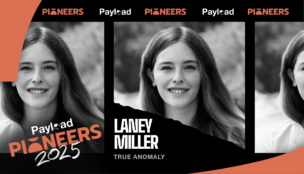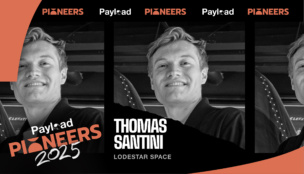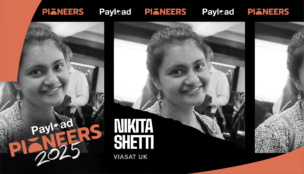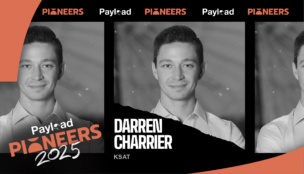For Victoria Woodburn, space has always been about more than rockets and distant planets. It’s about people—how societies harness space technologies to solve problems on Earth, and how global collaboration can shape a sustainable future beyond our planet.
“Every country should be able to benefit from space technologies, and leverage them to support their goals and needs,” Woodburn told Payload.
Finding her orbit: As a journalism student, Woodburn struggled to find her niche until she applied—almost on a whim—for a 2019 internship at the NASA Glenn Research Center in Ohio. Choosing NASA over a marketing role at a tech company, she said, was “the most consequential decision I’ve made in my life so far.”
A year later, she joined NASA Goddard Space Flight Center as a Brooke Owens Fellow, working as a science communicator across media campaigns. The fellowship’s “grand challenge”—designing ways in which space technologies could mitigate future pandemics—was pivotal, Woodburn said, in realizing the biggest hurdles weren’t technical; they were political and regulatory.
“I had this moment where I was like: ‘I don’t know if I just want to write about these; I also want to be able to tackle them,’” she said.
That insight nudged Woodburn’s career from reporting on space, to shaping its governance. For four years at The Aerospace Corporation, she worked in communications while collaborating closely with its Center for Space Policy and Strategy.
Space for all: About a year ago, Woodburn made a rapid three-week move to Switzerland to join the World Economic Forum (WEF). There, she helped build a recently published National Space Strategy Toolkit. The toolkit is designed to help emerging space nations create strategies to align with national priorities, and to leverage space capabilities for critical needs such as disaster response and water management.
What’s next: Woodburn’s work also includes a collaboration with the Saudi Space Agency’s Centre for Space Futures for a forthcoming study that translates the risk of orbital debris into economic terms. By calculating the potential cost of inaction, the project aims to build a stronger case for why debris mitigation and remediation technologies deserve attention.
“I think what we have struggled with—and what I see the space industry struggle with as a whole—is, how do we get non-space actors to care about these issues, and to care about space capabilities?” Woodburn said. “At the end of the day, we’re all speaking the language of economics.”
Earthly divides: The biggest challenge among nations in space policy comes down to trust, said Woodburn. National and international space policies, she notes, are still written to advance national agendas. That’s not inherently good or bad—it’s just how countries operate.
“Space is not independent of what’s happening on Earth,” she said. “As long as we don’t trust each other on Earth, it’s going to be difficult to trust each other in space.”





